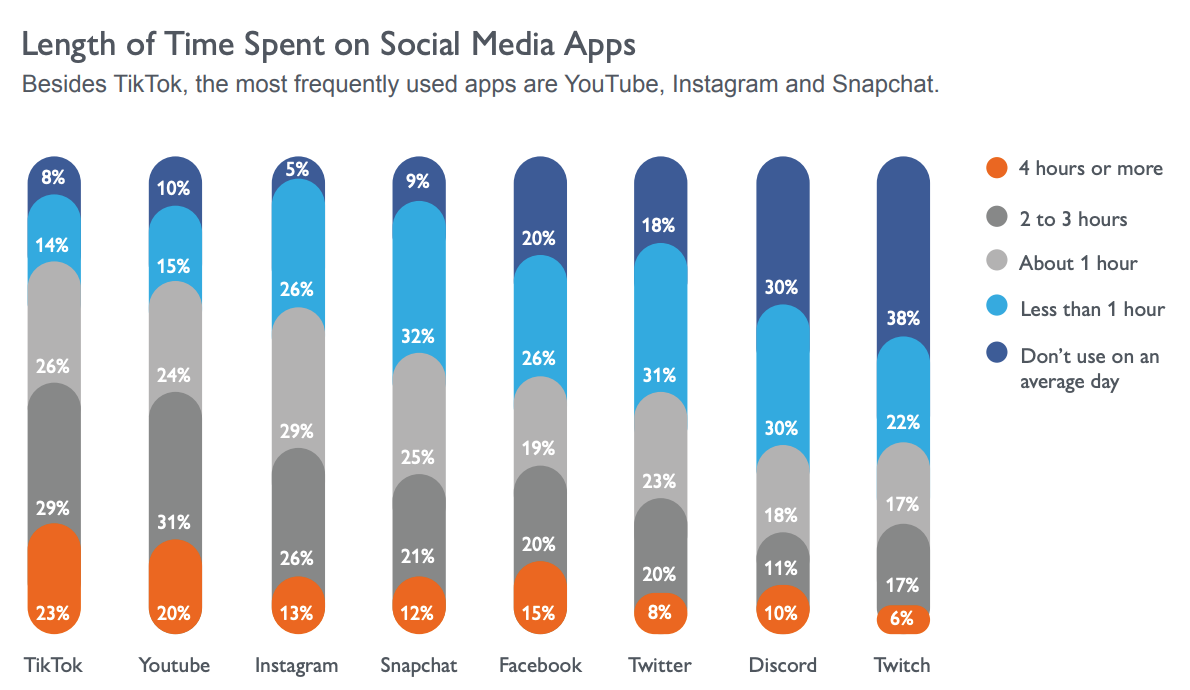They can’t vote yet, so maybe there’s time to get them interested in the most basic American right.
A new look at younger social media users, ages 13-17, finds they are not just obsessed with the social media platforms but that 64% would give up their right to vote just to keep access to apps such as TikTok.
TRUMP SURGES TO WIDER 2024 GOP LEAD, BIDEN STUMBLES
Think that’s bad? Among a larger group of the so-called “TikTok generation,” 13-24, 61% would trade voting for a year to stay on social media.
To those who focus on critical thinking and fighting disinformation on the internet, that’s an “alarming” finding.
“I think our children’s way of gathering information is actually being altered,” Helen Lee Bouygues, president of the Reboot Foundation, told Secrets.
She provided us with one of the most extensive surveys of young social media users that have been done, and the news in it isn’t good for groups such as hers that promote critical thinking.
Just the idea of trading voting to watch videos on social media is shocking to her, especially when so many elections are won and lost by a handful of votes. “Giving up the ‘right to vote’ for the ‘right to post’ is an alarming admission at a time when the populace is politically fractured, culturally splintered, and distrustful of American institutions,” the Reboot survey analysis stated.

Then, there is the time younger people spend on the apps. Nearly a quarter of those studied are watching or posting for four hours a day, with the majority viewing social media for 2-3 hours a day.
The other results weren’t much better, Bouygues said. For example, the longer younger people are on TikTok, YouTube, Instagram, and Snapchat, the less they believe in science. Those on it for an hour or more believe astrology is a science, and 17% of teenage users aren’t sold on the Earth being round.
“These young TikTokers acknowledge they are influenced by the app’s content on a wide variety of topics. Male users are more influenced by topics such as finance, science, education, and politics, while female users are more influenced by accounts promoting fashion and lifestyles,” the analysis said.
A big problem with that, Bouygues said, is TikTok and others are full of mis- and disinformation and that the longer users stay on, the less time they spend fact-checking on other sites. The use of news sites, for example, is depressingly low.
However, the survey did find parental support for viewership hour limits and rules.
Bouygues said she hopes schools and social media platforms will begin offering “tools” to help junkies determine what is true and not. She cited efforts in Nordic countries to teach critical thinking.
SEE THE LATEST POLITICAL NEWS AND BUZZ FROM WASHINGTON SECRETS
“We’re not providing the tools, neither to the teachers nor to the students, to actually be able to do critical thinking,” she said.
“Are children becoming dumber? No, they’re just becoming less equipped with the toolkit to be able to be better consumers of information,” she said, adding, “We really need to arm our children with these tools, but, unfortunately, that’s not what’s happening today. And then again, it has bigger implications, I think, to our democracy as well.”

